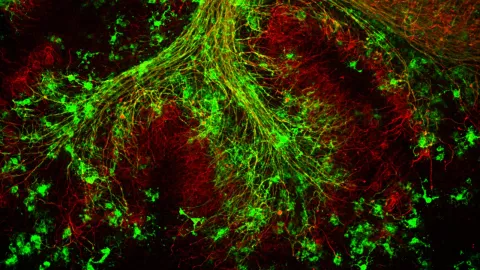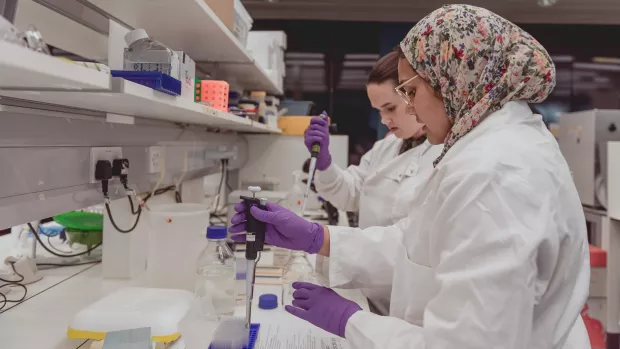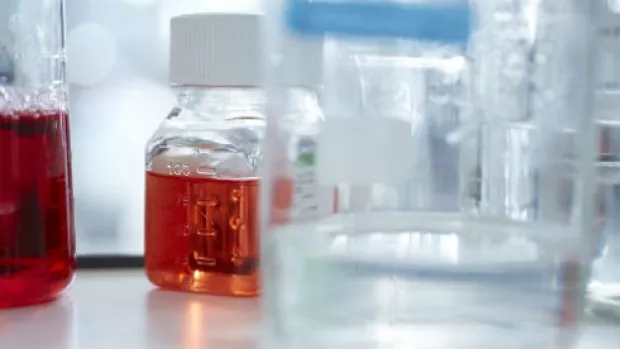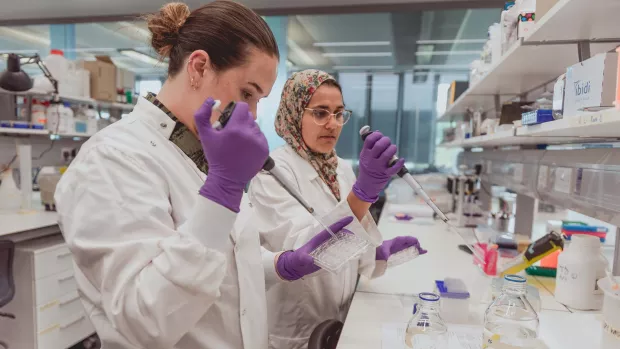
Scientists reverse stem cell ageing in rats
As our bodies age, muscles and joints can become stiff, making everyday movements more difficult. New research, which we've part-funded, has shown the same is true in our brains.
This age-related ‘brain stiffening’ has a significant impact on the function of the brain’s stem cells.
Ageing and myelin repair
Researchers at the Wellcome-MRC Cambridge Stem Cell Institute studied the brains of young and old rats to understand how ageing affects a type of stem cell called oligodendrocyte precursor cells (OPCs).
OPCs are important for repairing myelin – the fatty coating that surrounds our nerves which is damaged in MS. In MS, and as we age, this repair process slows down. OPCs stop responding and myelin damage builds up.
‘Rejuvenated’ stem cells
To find out whether the changes to OPCs are reversible, researchers transplanted OPCs from older rats into the brains of younger animals. Remarkably, the older brain cells were rejuvenated, and began to behave like younger cells.
To understand why this happened, researchers developed materials in the lab that had a similar softness to either young or old brains. They used these to grow and study the rat brain stem cells.
Dr Kevin Chalut, who co-led the research, said: “We were fascinated to see that when we grew young, functioning rat brain stem cells on the stiff material, the cells became dysfunctional and lost their ability to regenerate, and in fact began to function like aged cells. What was especially interesting, however, was that when the old brain cells were grown on the soft material, they began to function like young cells - in other words, they were rejuvenated.”
The role of Piezo1
The researchers think this might be caused by a protein called Piezo1, which helps cells sense whether their surrounding environment is soft or stiff.
Professor Robin Franklin, who co-led the research with Dr Chalut, said:
“When we removed Piezo1 from the surface of aged brain stem cells, we were able to trick the cells into perceiving a soft surrounding environment, even when they were growing on the stiff material. What’s more, we were able to delete Piezo1 in the OPCs within the aged rat brains, which lead to the cells becoming rejuvenated and once again able to assume their normal regenerative function”.
What does this mean for people with MS?
Dr Susan Kohlhaas, our Director of Research, said: “The Cambridge team’s discoveries on how brain stem cells age and how this process might be reversed have important implications for future treatment, because it gives us a new target to address issues associated with aging and MS, including how to potentially regain lost function in the brain.”



